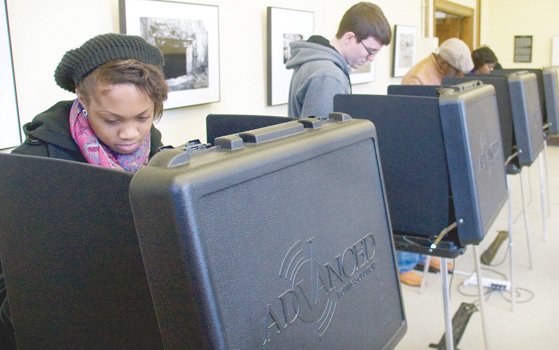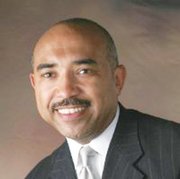Why vote on Nov. 4
‘When we vote, we win’
Gary L. Flowers | 10/31/2014, 6 a.m.
Commentary
In a Constitutional Republic, the privilege to vote preserves all other rights. But as political science holds, when the action of voting takes place, a reaction follows.
In 1870, the 15th Amendment to the United States Constitution granted the privilege of voting to newly emancipated enslaved Americans. Ever since then, Confederates have sought to nullify people of color from voting. The people who wore white robes as Ku Klux Klansmen in the 19th century have grandchildren who wear black robes as judges today. Such judges have allowed the madness of voter suppression to continue.
The same states that were placed under the 1965 Voting Rights Act — mostly Southern states — “coincidentally” are the same states that have enacted onerous barriers to voting, such as enacting voter identification laws. Virginia is one of those states.
Some never change. Confederates do not die; they multiply.
History has shown us that when we vote, we win. And when we stay home, the results are not good. For example, in Virginia when voters turned out en masse for the gubernatorial race in 1989, L. Douglas Wilder won. Similarly, when we showed up to vote in the 2008 presidential election, American history was made.
Conversely, in the midterm elections of 2010, only 49 percent of eligible voters participated. What resulted was the rise of the Tea Party, or neo-Confederates, and unreasonable radicals in the halls of Congress. That same year, more Americans voted for contestants on the television show “American Idol” than voted for candidates for Congress.
When voters stay home, candidates’ margins of victory are far less than the number of eligible voters who could have voted. According to the Rainbow PUSH Coalition, statewide vote totals in Southern states pale in comparison to non-voting eligible voters. In Virginia’s attorney general race in 2013, Mark R. Herring defeated Mark D. Obenshain by 165 votes. In the 2014 special election in Hampton Roads and the Eastern Shore for the state Senate, Lynwood W. Lewis Jr.’s margin of victory over Wayne Coleman was only nine votes.
Every vote counts.
Voting is the core of what many refer to as “politics.” And politics is, in essence, who gets what, how much and when.
While there are distasteful barriers to voting, such as one-day, weekday elections and voter identification laws, ultimately, effort leads to effects. Not voting rescinds the right to criticize.
In other words: Put up via voting or shut up, and impact what is important to you!
Gary L. Flowers of Richmond has a range of experience in politics. He is a former legislative aide to Virginia Delegate Jean W. Cunningham, special assistant to former Gov. L. Douglas Wilder, vice president/field director to the Rev. Jesse Jackson’s Rainbow PUSH Coalition and CEO of the Black Leadership Forum Inc.









